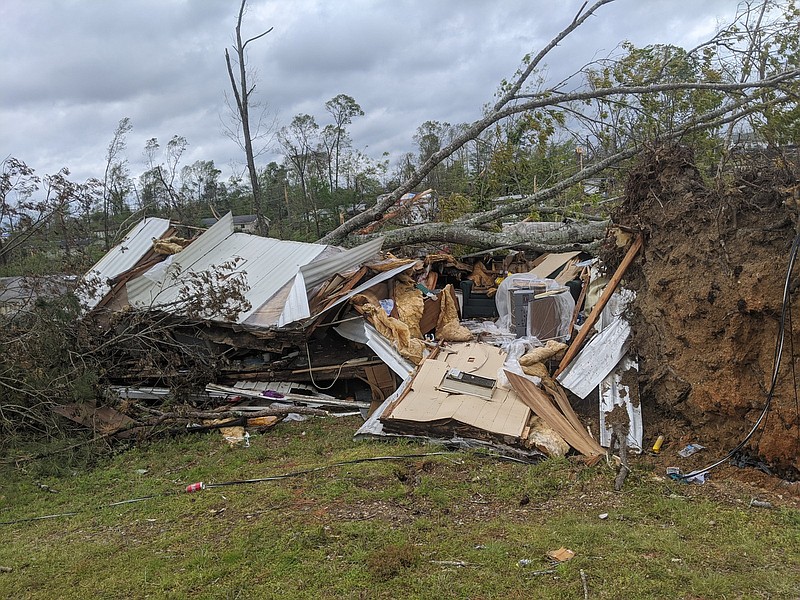En español: Agencias de manejo de emergencias detallan quién califica para ayuda por desastre después de tornados
___
With federal aid approved for Tennesseans affected by the deadly Easter Sunday storms and tornadoes, including one largely immigrant community, state and federal emergency management agencies have clarified the immigration and citizenship status needed for affected households to qualify for aid.
The storms killed at least four people in Southeast Tennessee and left 85,000 without power, according to Gov. Bill Lee's administration. It damaged or destroyed more than 550 residential properties and affected another 2,300 structures.
In Hamilton County, one of the county's three fatalities was a resident of an Ooltewah mobile home park where several immigrant families live, some of whom are undocumented, the residents told the Times Free Press.
Lee sought a federal emergency declaration shortly after the storms, and by April 24, President Donald Trump approved the declaration.
The federal aid supplements state and local recovery efforts in the areas affected by severe storms, tornadoes, straight-line winds and flooding. Assistance for individuals can include grants for temporary housing and home repairs, low-cost loans to cover uninsured property losses and other programs to help individuals and business owners recover from a disaster.
To qualify for assistance from FEMA's Individuals and Households Program, at least one member of a household "must be U.S. citizen, non-U.S. citizen national or qualified alien," according to the agency. That one person could be a minor, so long as the minor has a Social Security number.
A "qualified alien" includes:
- Permanent residents, or "green card" holders.
- An asylee, refugee or person whose deportation is being withheld.
- Non-citizens paroled into the U.S. for at least one year, meaning they have permission, usually for emergency medical reasons, to stay within the U.S. for at least one year.
- A person granted conditional entry.
- Cuban/Haitian entrant.
- Non-citizens who have been abused, subject to battery or extreme cruelty by a spouse or other family or household member, or have been a victim of a severe form of human trafficking. This includes parents of abused children and children whose parents were abused.
Adults who aren't U.S. citizens, non-citizen nationals or "qualified aliens" can apply on behalf of a minor who does qualify and has a Social Security number, according to FEMA. The minor must live with the parent or guardian applying on the minor's behalf.
No questions about citizenship status will be asked, FEMA states.
Those who are unsure of their immigration status should talk to an immigration expert to determine whether their status falls within the "qualified alien" category. The deadline to register for federal assistance is June 23.
If a person does not qualify, FEMA notes that volunteer organizations offer help regardless of citizenship status.
To find volunteer organizations in a specific disaster area, call 1-800-RED CROSS (1-800-733-2767) or look up the local Red Cross chapter at redcross.org/find-your-local-chapter. Visit nvoad.org/our-members to learn more about other volunteer organizations.
Survivors in Bradley and Hamilton counties can register with FEMA by visiting DisasterAssistance.gov, downloading the FEMA app, or call 800-621-3362 (800-462-7585).
Contact Rosana Hughes at rhughes@timesfreepress.com or 423-757-6327 with tips or story ideas. Follow her on Twitter @Hughes Rosana.
